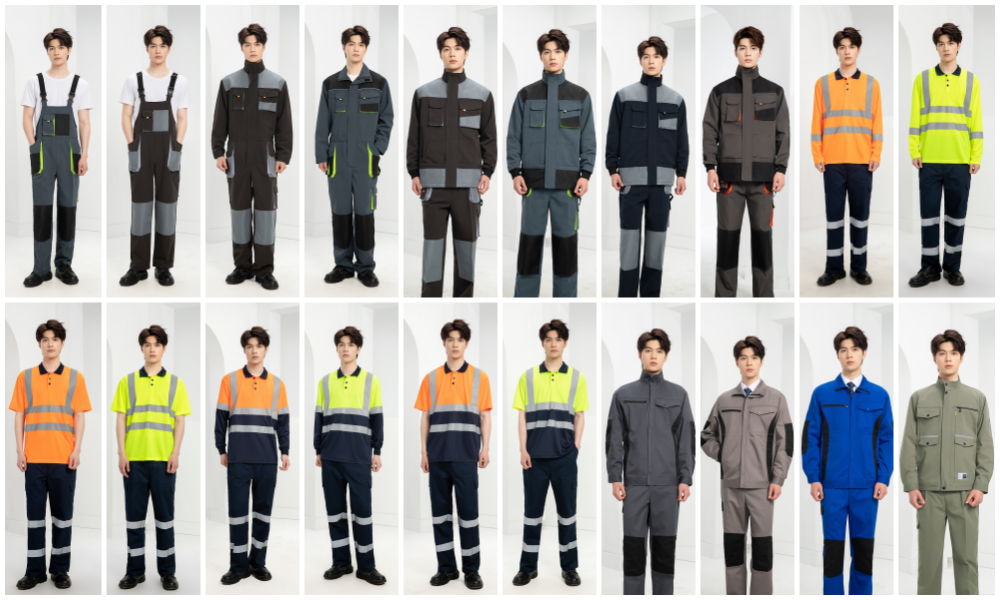Author:HAIYUAN TIME:2025-06-19Read:
Transporting work clothes from China to Palestine involves navigating complex logistics due to Palestine's unique geopolitical situation. Here's a breakdown of the key steps and options:
Key Challenges & Considerations:
No Direct Port/Airport: Palestine lacks major international seaports or airports handling significant commercial cargo. Shipments must transit through neighboring countries:
Israel: Primary route. Ports of Ashdod or Haifa (sea), Ben Gurion Airport (TLV - air). Requires Israeli customs clearance before onward transport to West Bank or Gaza.
Jordan: Port of Aqaba (sea), Queen Alia Airport (AMM - air). Requires Jordanian customs clearance before land transport across Allenby Bridge into the West Bank.
Customs & Regulations: Strict Israeli customs procedures apply. Documentation must be perfect. Goods entering Gaza face significantly more restrictions and require coordination via approved channels (often involving UN agencies or specialized brokers).
Final Delivery: Requires reliable local partners within Palestine (West Bank or Gaza) for last-mile delivery, navigating internal checkpoints (especially relevant for West Bank).
Geopolitical Volatility: Delays at borders/checkpoints are common. Factor in buffer time.

Primary Shipping Methods:
Sea Freight (Most Common for Volume):
Process: Factory -> Chinese Port (e.g., Ningbo, Shanghai, Shenzhen) -> Sea Transit -> Israeli Port (Ashdod/Haifa) or Jordanian Port (Aqaba) -> Customs Clearance (Israel/Jordan) -> Land Transport -> Palestinian Destination (West Bank/Gaza).
Options:
FCL (Full Container Load): Best for large volumes (e.g., 1x20ft or 1x40ft container). More secure, faster port handling.
LCL (Less than Container Load): For smaller volumes. Your goods share a container with others. Slower, more handling, higher risk of damage/loss, but cost-effective for smaller shipments.
Pros: Most economical for large volumes.
Cons: Slowest option (4-6+ weeks transit + clearance), complex handling at transshipment points.
Air Freight (Faster, More Expensive):
Process: Factory -> Chinese Airport (e.g., PVG, CAN, PEK) -> Air Transit -> Ben Gurion Airport (TLV - Israel) or Queen Alia (AMM - Jordan) -> Customs Clearance (Israel/Jordan) -> Land Transport -> Palestinian Destination.
Pros: Fastest option (typically 3-8 days transit + clearance). More secure, less handling.
Cons: Significantly more expensive than sea freight, especially for heavy/bulky items like work clothes. Volume/weight restrictions.
Land Freight (Rarely Viable from China):
Process: Extremely long overland journey through multiple countries (China, Central Asia, Iran/Turkey, potentially Syria, Jordan). Not practical or recommended due to distance, numerous borders, security risks, high cost, and immense complexity. Effectively not a viable option.
Essential Steps & Requirements:
Find a Reputable Freight Forwarder: CRITICAL. Choose one with demonstrable experience shipping to Palestine/West Bank/Gaza specifically. They must have strong partners/agents in Israel and/or Jordan and within Palestine.
Get Multiple Quotes: Specify FCL, LCL, or Air. Get detailed breakdowns (origin charges, ocean/air freight, destination charges, customs clearance fees, trucking within Palestine).
Verify References: Ask for recent examples of shipments to Palestine.
Accurate Documentation: Your forwarder will guide, but you must provide:
Commercial Invoice: Detailed description, value, HS codes for work clothes, Incoterms.
Packing List: Exact quantities, weights, dimensions per package/container.
Certificate of Origin: Usually required by Israeli/Jordanian customs.
Bill of Lading (Sea) or Air Waybill (Air): Issued by the carrier/forwarder.
Import Licenses/Permits (If Required): Check Palestinian import regulations for clothing. Your Palestinian importer is responsible for this.
Other Potential Certs: Depending on the type of work clothes (e.g., safety certifications).
Incoterms: Clearly define responsibilities (Who pays for what, risk transfer point). Common choices:
FOB (Free On Board) China Port/Airport: You pay costs to load onto ship/plane in China. Buyer/importer handles everything else (freight, insurance, destination costs, clearance). Most common for exports.
EXW (Ex Works) Factory: Buyer/importer handles all costs and logistics from your factory door. Requires them to have an agent in China.
CIF (Cost, Insurance & Freight) Israeli/Jordanian Port/Airport: You pay freight and insurance to the port/airport. Risk transfers at port/airport. Buyer handles import clearance and onward shipping.
DAP (Delivered At Place) West Bank/Gaza: You pay all costs and assume all risk until goods are delivered to the named place within Palestine. Requires a very capable forwarder. Higher risk/cost for you.
Customs Clearance (Israel/Jordan): Handled by your forwarder's agent. Be prepared for inspections and potential delays. Documentation accuracy is paramount. Duties/VAT will be payable by the importer in Palestine.
Onward Transport to Palestine:
Via Israel: Truck from Ashdod/Haifa/TLV to West Bank cities (Ramallah, Nablus, Bethlehem, etc.) or to the Kerem Shalom crossing for Gaza (requires specific coordination and often UN involvement).
Via Jordan: Truck from Aqaba/AMM to Allenby Bridge crossing into West Bank. Requires coordination with Jordanian and Israeli/Palestinian authorities.
Final Delivery: Reliable Palestinian trucking company needed for last-mile delivery within West Bank or Gaza.
Cargo Insurance: HIGHLY RECOMMENDED. Purchase "All Risks" marine/air cargo insurance to cover loss or damage during the entire journey, including the complex transshipment and land legs.
Recommendations:
Start with a Specialized Forwarder: This is the single most important step. Their expertise is invaluable.
Choose Sea Freight (FCL if possible) for Cost: Best for typical volumes of work clothes unless urgency is critical.
Choose Air Freight for Speed: Only if time is the absolute priority and budget allows.
Prioritize Documentation: Ensure every detail is perfect. Errors cause major delays.
Factor in Buffer Time: Add significant extra time (weeks) to standard transit estimates for potential clearance and border delays.
Insure Your Shipment: Protect your investment against unforeseen events.
Communicate Clearly: Maintain open communication with your supplier, freight forwarder, and Palestinian customer/importer.
By carefully selecting an experienced freight forwarder, preparing meticulous documentation, choosing the right shipping method based on cost/time needs, and building in contingency plans for delays, you can successfully transport work clothes from China to Palestine.
As a leading manufacturer of workwear and protective equipment in China. Our company can provide customers with different types of Workwear. You can choose styles directly from our website. In addition, if you have customized style design drawings, we can provide OEM service for you.
Back to Top
+8619948039507
